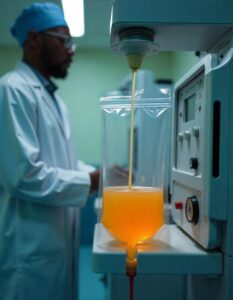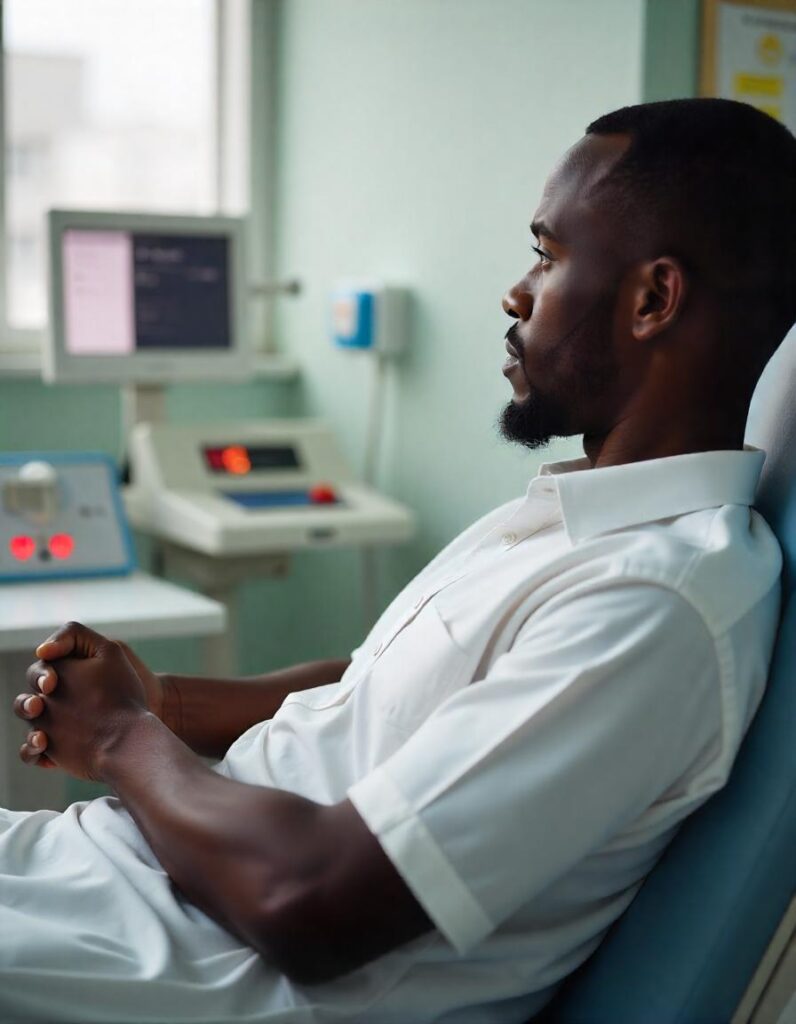Have you ever considered giving plasma? You might have heard that plasma donation is vital in saving lives. Yet, if this is your first time donating plasma, it’s normal to feel a mix of excitement, anxiety, and curiosity. But don’t worry! This guide will walk you through the entire process, so you’ll know exactly what to expect. Not only will you feel confident about your donation, but you’ll also understand how your plasma can save lives across Nigeria.
What is Plasma Donation? A Quick Overview
Plasma is the pale-yellow liquid portion of your blood that carries water, salts, and proteins throughout the body. It helps transport nutrients, hormones, and waste products, making it essential for your overall health. Plasma donations are used to treat various medical conditions such as burns, shock, and certain cancers. Donating plasma is a safe and selfless way to give back to the community while making a lasting impact.
The Blood Donation Process: Step by Step
When you decide to donate plasma for the first time, understanding the process will make the experience easier and more comfortable. At a reputable plasma donation center like Oneus in Nigeria, the entire process is streamlined, hygienic, and well-supervised.
-
Pre-Donation Screening:
Before you can donate plasma, you’ll undergo a quick screening. This includes checking your blood group, genotype, rhesus factor, and general health. If everything is in order, you’ll be ready for donation. -
Plasma Collection:
Once cleared, you’ll be seated comfortably. A trained professional will insert a needle into your arm to collect the plasma. Don’t worry, the procedure is similar to donating blood and takes about 45-90 minutes. The collected plasma is then separated from your red blood cells, platelets, and white blood cells. -
Post-Donation Recovery:
After donating plasma, you’ll rest for a few minutes to recover. You may feel thirsty or slightly fatigued, but a snack and water will help restore your energy quickly. You can resume normal activities after a short recovery period.
Giving Plasma vs. Blood Donation: Key Differences
While both blood donation and plasma donation are life-saving, there are a few key differences. Blood donation involves the collection of whole blood, while plasma donation focuses on the liquid component of your blood. Since plasma regenerates faster, you can donate it more frequently than whole blood.
Why Plasma Donation Is So Important
In Nigeria, there is a growing demand for plasma, especially for patients undergoing treatments like bone marrow donation, blood plasma donation, and even stem cell donation. If you are considering giving plasma, know that you are playing a crucial role in supporting patients with chronic illnesses, burns, and other medical conditions.
Plasma Donation: Risks and Benefits

Plasma donation is generally safe, especially when done at certified plasma centers like Oneus in Nigeria. However, as with any medical procedure, there are some minor risks to be aware of, including:
-
Bruising or soreness at the needle site
-
Dizziness or lightheadedness (which is typically temporary)
-
Dehydration if adequate fluids are not consumed before and after donation
By following the guidelines provided by professionals, the benefits far outweigh the risks. In addition to the satisfaction of helping others, blood donation benefits include improved health for both the donor and the recipient. Studies show that regular blood donation can boost the production of red blood cells and improve circulation.
The Importance of Donating Plasma and Bone Marrow
Not everyone can donate plasma, but those who can make a difference. You may wonder if selling plasma is an option, and while there are places where people sell plasma, the act of donating it voluntarily for medical treatment is a noble and impactful choice. Plasma can also be used to create blood products that help treat everything from clotting disorders to autoimmune diseases. Plasma donation centers play an essential role in ensuring a steady supply of these life-saving products.
In addition to plasma, consider other types of donations like platelet donation or bone marrow donation. These donations are crucial in helping those battling blood cancers and leukemia.
Take Action: Giving Plasma Can Save Lives
It’s time to step up and make a difference! Whether you are looking to give blood or donate plasma for the first time, your contribution could help save someone’s life. Many Nigerians rely on donations to treat life-threatening conditions, and your generosity matters now more than ever. The Oneus plasma center in Nigeria is one of the top places to donate plasma with trained medical professionals ensuring your safety and comfort during the process.
If you’re ready to be a hero, visit our blood donation website at www.oneusng.com to book your plasma donation appointment today. It’s easy, safe, and incredibly impactful.
Give Blood, Save a Life – Book Your Donation Now!
Contact us at info@oneusng.com or call +234 902 168 2822 for more information. Don’t wait—become a donor and help those in need.




